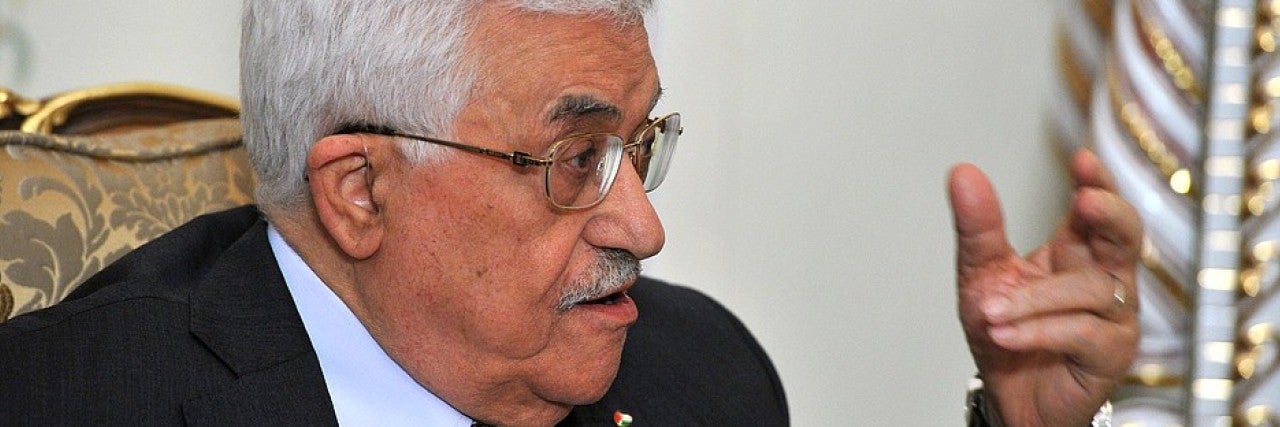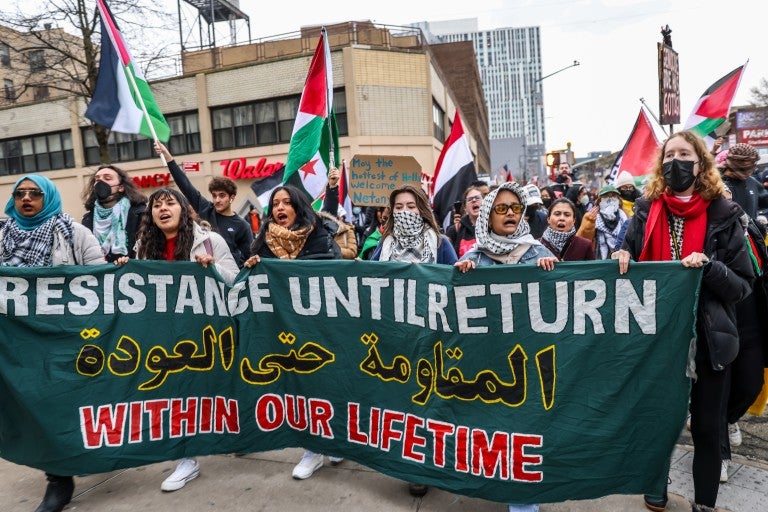February 2, 2018 — Jerusalem
By Eran Lerman
Is Mahmoud Abbas about to step down, perhaps even undo the entire Oslo process, and hand over the Palestinian Authority's functions – the proverbial "car keys" - back to Israel? Given the depth of anger revealed by his speech on January 14, in which he hurled insults at President Trump and offered an ugly, bizarre, and totally fictitious disquisition on Zionism and Jewish history, it is not surprising that this option seems to loom larger than ever. Would an American decision to cut off funding for UNRWA and parts of the aid budget precipitate this ultimate step, the self-abolition and dissolution of the PA?
The short answer, in all likelihood, is no, and certainly not yet. But just in case, the relevant Israeli agencies – above all, the IDF, and specifically the Coordinator of Government Operations in the Territories (COGAT), until recently under MG Yoav ("Poli") Mordechai – are surely justified in doing all they can to avert such a scenario. They recognize that Israel's national interests require a Palestinian establishment able to sustain at least a semblance of governance and some degree of order. Unless one subscribes to the fantasy visions of some sort of one-state solution, variations of which are expressed by the hard left and the hard right, the survival and proper functioning of the PA remains a win-win proposition: good for Israel, good for the Palestinian politicians aspiring to statehood, and good for the governed Palestinian population.
The counter-argument raised by many Palestinian activists is that the PA was never meant to be a permanent institution: it was supposed to become, within a few years, a viable state with proper sovereign attributes. This was nearly a generation ago, and nothing has happened since the Hebron Agreement of 1997. Israel ended up reaping the benefits of the ongoing stalemate. The time has come, these critics say, for the PA to put an end to the charade and make Israel face up to her responsibilities as the occupying power. Let the Israelis feed us and pay for our education, and then we shall see how much longer they will insist on holding "the territories." Alternatively, this could be the corridor leading to a "one state" solution, without geographic borders between the two peoples.
Close scrutiny reveals this "strategy" to be self-defeating. Israel will not commit national suicide by accepting a one-state model. The idea may have some eloquent advocates, but it simply cannot work when the GDP per capita in Israel is 30 times higher than in the West Bank. This will make for a very sick and crime-ridden society. The imperative need for separation, one way or another, would quickly assert itself. However, it will not lead, as some Palestinians imagine, to an orderly transfer of power to a Palestinian state, but rather to a long, chaotic, and destructive scenario.
The present “state,” in other words, may have its faults – and needs to be replaced by a better, more stable, "permanent status" agreement. But viewed against the background of the horrors in Syria, the disintegration of Yemen, and the bloodthirsty rule of "Baghdadi" and his caliphate, it looks better than some of the likely alternatives. Moreover, there are several specific reasons why the breakup of the PA - a threat right out of the self-abduction scene in Blazing Saddles – is not quite likely.
To begin with, the PA cannot easily undo the entire Oslo process without losing its own legitimacy and its place in history as the force that led the Palestinian people a step close to independence. At 83, Abbas may well be thinking about his legacy, and, if so, the total admission of defeat is not a happy note on which to end his career. To this may be added the well-founded concern that a disorderly collapse may take away the immunity his family has enjoyed until now from any searching look into their business transactions.
Moreover, the PA security forces and intelligence services have their own reasons to sustain the existing power structures – and not only because of sheer organizational inertia. The abolition of the PA is bound to leave the security forces to the tender mercies of vengeful Hamas and Palestinian Islamic Jihad elements, eager to settle old scores from 2006 and 2007.
Third, and currently most important, the economic future of the population in the West Bank and Gaza remains dependent on proper management of the relationship with Israel. This requires at least a semi-functional PA. And this is why the Prime Minister of the PA, Rami Hamadallah, traveled to Jerusalem this week to meet Finance Minister Moshe Kah'lon to discuss taxes and transfers in advance of the AHLC (donor community) meeting in Brussels. This is also why the Trump "bombshell" on Jerusalem did not derail the AHLC meeting.
For some in Israel who seek an early resolution of the conflict, persistence of the status quo is bad news. This type of "conflict management" just puts off the necessary day of reckoning. But for the IDF and most of the government, the current rules of the game are prudent measures designed to avoid another round of violence.
In the same conflict-management mode, Tsahi ha-Negbi, Israel’s able Minister for Regional Cooperation, joined the discussion in Brussels on the situation in Gaza. While no “Marshall Plan” is conceivable there so long as Hamas rules, the PA could play an instrumental role in solving such problems as electricity and water supply, both through small-scale desalinization plants. Should the PA do so it would also be pulling the governmental rug out from under the feet of Hamas—one more reason for Abbas, Hamadallah, and Faraj not to hand over the keys anytime soon.
Eran Lerman is the former deputy for foreign policy and international affairs at the National Security Council in the Israeli Prime Minister's Office. Prior to that, he served as director of AJC Jerusalem.


